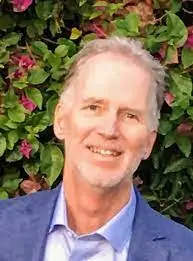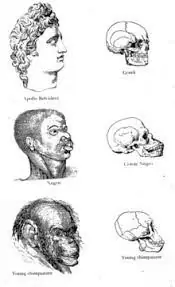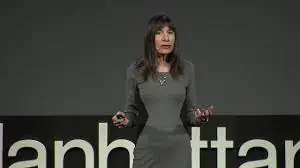Alicia Martin, critic of race realism, proves race realism
Steve Sailer is a popular researcher and writer in the alt-anthropology movement.
Alicia Martin PhD is a researcher at the Analytic & Translational Genetics Unit at Massachusetts General Hospital, an Instructor in Medicine at Harvard Medical School, and an Associated Scientist at the Broad Institute. She’s also a harsh critic of race realism. From her bio:
 As a population and statistical geneticist, her research examines the role of human history in shaping global genetic and phenotypic diversity. Given vast Eurocentric study biases, she investigates the generalizability of knowledge gained from large-scale genetic studies across globally diverse populations. She is particularly focused on ensuring that the translation of genetic technologies via polygenic risk does not exacerbate health disparities induced by these study biases. Towards this end, she is also developing statistical methods and resources for multi-ethnic studies and underrepresented populations.
As a population and statistical geneticist, her research examines the role of human history in shaping global genetic and phenotypic diversity. Given vast Eurocentric study biases, she investigates the generalizability of knowledge gained from large-scale genetic studies across globally diverse populations. She is particularly focused on ensuring that the translation of genetic technologies via polygenic risk does not exacerbate health disparities induced by these study biases. Towards this end, she is also developing statistical methods and resources for multi-ethnic studies and underrepresented populations.
Martin is a crusader against what she sees as white repression of other-than-whites.
From the NewScientist, Oct. 2019,
Genetic studies have missed important gene variants in African people
Human genetics studies have suffered from a lack of diversity and more research on people from different parts of the world is needed, says Deepti Gurdasani at Queen Mary University of London, who led the work in Uganda.
“European ancestry populations make up 16 per cent of the global population, but approximately 80 per cent of participants in genetic studies,” says Alicia Martin at the Broad Institute in Cambridge, Massachusetts. “This means populations of all other ancestry groups are vastly underrepresented.”
Gurdasani and her colleagues analysed DNA from more than 6000 people in a rural community in south-west Uganda. The researchers found that 29 per cent of the gene variants they discovered weren’t present in one of the largest existing databases of human genome sequences.
Further, of particular interest to readers of Subspecieist:
 Because all humans originated in Africa (sic), groups that later migrated elsewhere took only a fraction of genetic diversity with them. “Two individuals within an African population will be much more different than two individuals within a European population,” says Gurdasani.
Because all humans originated in Africa (sic), groups that later migrated elsewhere took only a fraction of genetic diversity with them. “Two individuals within an African population will be much more different than two individuals within a European population,” says Gurdasani.
Note – All humans originating in Africa, is of course in dispute, especially now with recent fossil finds in Eurasia, and genetic evidence of archaic Hominid admixture.
Ironically she was part of a study that disproved her own theories on racial differences.
From Broad Institute, March 29,
Study highlights need to increase diversity within genetic data sets
“According to a new study, however, polygenic scores developed by studying Europeans do a better job at predicting disease risk for people of European ancestry than for those of other ancestries…
“From a clinical context, this means that current polygenic scores are significantly better in predicting the risk of common diseases for people of European ancestry than those of African ancestry,” said Alicia Martin…
This further confirms that risk predictors are more precise if they are drawn from genetic data derived from a similar ancestry,” Martin said. “It is crucial that researchers should recruit more minority populations in future genetic studies. [Emphasis added]
Steve Sailer takes Alicia Martin to task
A number of human biodiversity advocates called Dr. Martin out on Twitter.
In other words, genetic differences among, at least, the traditionally recognized human races, such as Europeans, East Asians, and sub-Saharan Africans, are large enough that genetic analyses need to be performed on each race separately to be satisfactorily accurate enough. https://t.co/Opv2X1jYGy
— Steve Sailer (@Steve_Sailer) April 1, 2019
UPDATE!
Alicia Martin continues to do research on human genetics, demographics and populations. Her latest, she was a co-author of a study that tracks geographical gene flow and ancestry in the US. Per the-scientist.com:
Researchers at the lab, where he [Chengzen Dai] was doing his master’s, are interested in how humans move around and interact with one another, he explains. As he and his colleagues planned the study, “we had the hypothesis that cities, and in a broader sense, geography has played a major role in how ancestry and admixture occurs.”
Dai, now a software engineer at the Institute for Systems Biology in Seattle, and his advisor, designer and engineer Carlo Ratti, teamed up with population geneticist Alicia Martin of the Broad Institute and other colleagues to test their hypothesis using data from National Geographic’s Genographic Project, a now-discontinued effort to sequence genomes from around the world to track migration patterns.


